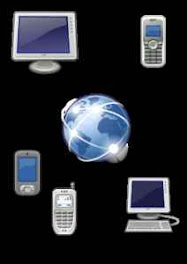Today, worship leaders are literally able to present the world to their congregations in real time if they wish, without a single physical tether. The implications—educationally, emotionally, relationally, architecturally, and even spiritually—are truly awe-inspiring. Making the best and most cost-effective decisions about wireless, however, requires an understanding of what wireless technology can and cannot do.
From the viewpoint of connecting in new ways with a congregation, wireless opens up a wide range of possibilities. An almost limitless array of equipment can be connected via wireless, including pulpit- or lectern-mounted PCs, digital projectors and presentation screens, all of which can be used for worship slides, video or Internet browsing. Wireless microphones and musical instruments give speakers and musicians total freedom of movement, while roaming video cameras allow technicians to move throughout a worship space without interrupting parishioners.
Another benefit of wireless systems is that they are cost effective. Equipment can be set up in as little as a few hours, saving significant time and labor costs. Since there’s no wire to run, facilities have less material to buy, fewer holes to make in walls and floors or ceilings, and no outlets to install.
Wireless Options
While the international 802.11 wireless protocol, often known as Wi-Fi, is the key communications standard for computer systems, it is by no means the only non-cable solution applicable to worship spaces. Radio-frequency transmission is commonly used for microphones and musical instruments; infrared is used for line-of-sight data; Bluetooth and even cellular devices also have their uses.
For the worship experience, however, 802.11g and radio transmissions are the most common. The number of 802.11 devices that can be used in the same room is limited only by the segregation of systems. Each Wi-Fi device has its own Media Access Control (MAC) address, which enables multiple devices to transmit and receive unique streams of data from the same access point. (With so many connections possible, in fact, devices can actually overload the pipeline capacity of a network system. To help allocate and manage bandwidth, products like the Optinet can be installed to prioritize and control Internet traffic.)
Yet some of the best reasons to go wireless are not economic, but rather architectural or personal. With more and more congregations in facilities that are decades—even hundreds—of years old embracing new technologies, wireless systems can be the only way to circumvent wiring problems. What’s more, many worship leaders prefer wireless systems for the flexibility they allow. No longer are they tied to a single point in the floor or lectern; wireless mics and clickers allow them to move about and control the flow of video and audio information from anywhere—even among the pews. They also have the option of operating devices themselves or allowing technical staff to do so from the back of the room.
Only a few environmental parameters limit the deployment of wireless systems. If one or more walls or other obstructions lie between the access point and the altar or stage, a repeater unit may be required somewhere between the two points to capture and boost the wireless signal. Also, while the chance of interference is slight, some wireless signals can be compromised if more than one access point is in the vicinity. Access points throw off signals from each other if they transmit on the same, or nearly the same, channel. If this occurs, one must be reset to a frequency with a greater degree of separation.
New Products
In recent months, new products have come to market that make integrated wireless systems more practical than ever before. In addition to Optinet, which manages and allocates bandwidth in real time to meet the data transmission requirements of various wireless devices, breakthroughs like the Wireless VGA Video Presentation System enable users to wirelessly access any Video Graphics Array (VGA) video projector from up to 200 feet away.
The unit, which attaches to the back of any Super VGA or Wide XGA (eXtended Graphics Array) projector, allows multiple PCs to broadcast videos, slides or web pages through the same projector without physical connection. The Wireless VGA Video Presentation System is an inexpensive (under $500) way for worship technicians to project announcements, song lyrics and other A/V content, yet also allow instant “hand-over” to ministers or other speakers who wish to direct their own visual aids during sermons. Its 254-user capacity also makes it practical for conferences or other large-scale events where numbers of people may need to broadcast images.
Other new technologies, however, make it possible to take worship experiences far beyond just video and audio. Audience polling systems are gaining interest in churches. Comprised of a central receiver and any number of small, credit-card-sized polling units that are handed out to parishioners, the system enables speakers to anonymously gather responses from dozens, even hundreds, of people instantly via infrared or radio transmission. Tablet PCs are also becoming more popular, enabling worship leaders to draw, underline or write on their portable wireless PC, and allowing their listeners to see the projected results.
Easy to Install
Installing a wireless system is easy enough for non-professionals to do if they have some basic knowledge. For best reception, wireless Wi-Fi routers or access points should be mounted in a central location; if this is not possible, a high-gain antenna can be used to focus the signal in one direction. Repeaters can also be used to overcome problems presented by walls or floors. A good rule of thumb is to allow no more than 200 feet, line of sight, between the access point and the front of the worship space without some sort of signal boost.
Security for your wireless signal should also be a consideration. Surprisingly, most people don’t take advantage of the security tools that are built into almost every wireless signal emitter. At minimum, you should change the service set identifier (SSID), turn on encryption, and change the default password. If you don’t, you open your system to opportunistic outsiders who can “hop” on your signal, diverting bandwidth and even, perhaps, compromising your worship presentation.
You’ll find a wealth of information online that can help you correctly install your wireless equipment. The best online vendors of wireless products also have free design consulting and technical support personnel who can answer any questions.
On the Horizon
Wireless technology is not new—but its capabilities and possibilities continue to grow. Late this year, the 802.11n standard is expected to be approved, putting into place an upgrade that can increase wireless data transmission rates by a factor of 10 (802.11g and b devices will be compatible, although at slower rates). New software and equipment enable worship leaders to solicit cell phone text messages and even “tweets” from their congregations for on-screen display. With costs going down, data rates going up, and new products continuing to be introduced, the ability for wireless equipment to engage a congregation has never been greater.
by Franco Tavella, As published in Worship Facilities Sept/Oct/'09
For the best products and services for your church facility and community, contact...
Network Cabling Atlanta ; info@networkcablingatlanta.com ; 678-233-0325
Discount Church Furniture ; info@discountchurchfurniture.com ; 1-866-404-7671
Podium-Lectern ; info@podium-lectern.com ; 678-889-845


 VoIP Atlanta
VoIP Atlanta







